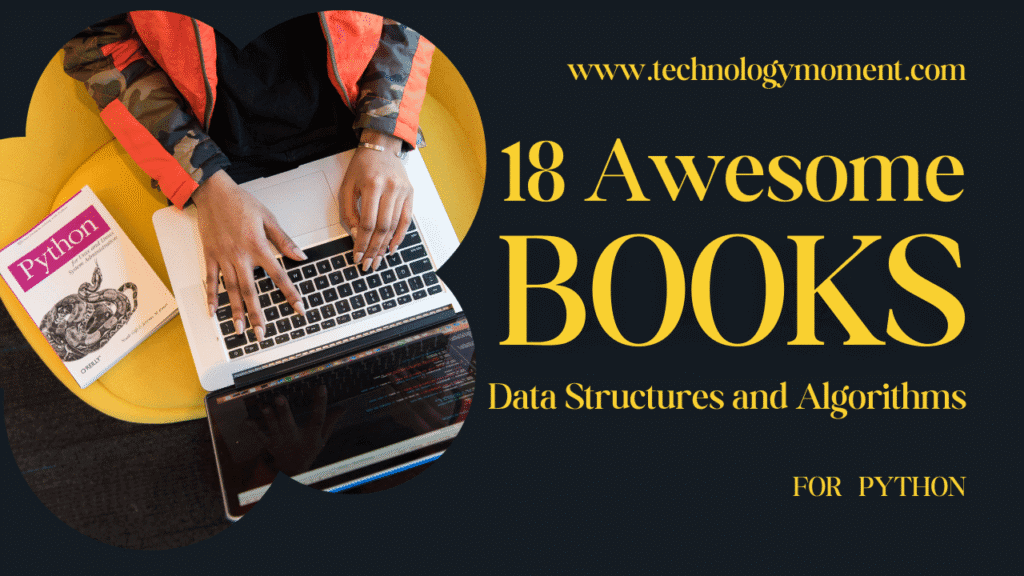
Welcome to Technology Moment, where we bridge the gap between curiosity and clarity—one article at a time. Today, we’re diving deep into a skill that has quietly powered the digital age for decades: SQL, or Structured Query Language.
A young marketing analyst in New York needs to pull customer data from a company’s CRM to discover why churn rates are spiking. On the other side of the world, a healthcare researcher in Bangalore is writing SQL queries to analyze patient records to improve treatment outcomes. Meanwhile, a solo founder in Nairobi is building a small fintech app and relying on SQL to make sense of user transaction logs. Different industries, different continents—but the same tool ties them all together.
That’s the magic of SQL. Whether you’re fresh out of college or a seasoned software engineer, knowing how to talk to databases using SQL gives you power—power to extract insights, automate reports, and even optimize entire business operations. But let’s be honest: learning SQL isn’t always as exciting as launching an app or playing with AI. That’s why having the right SQL book can make all the difference.
Here at Technology Moment, we don’t just dump lists of book titles and call it a day. We care about how learning happens. That’s why this blog post isn’t just a list of “best SQL books”—it’s a thoughtfully structured guide based on real-world usage, author credibility, and most importantly, learning outcomes. Every book we recommend has a purpose. Some are for complete beginners who don’t know what a table is. Others are for experts aiming to speed up complex queries on massive datasets in production environments.
What makes this topic even more exciting is how universal it is. From Silicon Valley startups to government data offices in Berlin, SQL is the unsung hero in the background. It’s the quiet powerhouse behind dashboards, search bars, reports, machine learning pipelines, and even your favorite food delivery app.
Maybe you’re a student thinking, “Where do I even begin?” Or maybe you’re a business owner tired of asking your IT guy to pull a report for you. No matter where you stand, mastering SQL isn’t just a step forward in your career—it’s a leap into the future of data.
In this article, we’ll walk you through SQL books by skill level—from beginners all the way to specialists looking to optimize PostgreSQL performance or crack the complexity of SQL Server internals. But more importantly, we’ll share why each book matters, who it’s for, and how it can help you grow in the real world.
Because here at Technology Moment, we believe that learning SQL isn’t about memorizing commands—it’s about mastering data. Let’s turn those tables and start querying like a pro.
Table of Contents
Let’s get one thing straight — in the world of data, SQL is king. It’s been around for decades, and yet in 2025, it’s more relevant than ever. Why? Because data is everywhere — in apps, websites, social media, sensors, business dashboards — and SQL is the universal language we use to talk to that data.
You’re working in a small company in Nairobi. You’re not a data scientist, but your boss asks you to extract customer insights from a sales database. If you know SQL, you can run a quick SELECT statement and pull those numbers instantly. But without it? You’re stuck waiting for the IT team.
From marketing interns in Canada trying to impress their manager, to engineers in India automating reports, SQL is their secret weapon.
And here’s the best part: you don’t need to be a computer wizard to learn it. With the right book, a laptop, and some curiosity, anyone — yes, even you — can master SQL step-by-step.
Beginner Level SQL Books
Starting with SQL can feel intimidating. All those uppercase words like JOIN, GROUP BY, HAVING — it looks like shouting in code! That’s why beginner books matter so much. They hold your hand, speak in plain English, and help you fall in love with databases, one query at a time.
Let‘s discuss Allen G. Taylor‘s “SQL For Dummies.“ A classic — and for good reason. Picture a grandmother in Brazil who decided to build a blog and analyze visitor data. She picked up this book, and within a few weeks, she was running reports using basic SQL. The book’s conversational tone, relatable examples, and gentle pace make it perfect for someone who’s never coded a line in their life.
Another gem is “Head First SQL” by Lynn Beighley. This one’s funky and visual. It’s like sitting in a classroom where the teacher draws funny cartoons to explain PRIMARY KEY and NULL. I once met a chef from Italy who was switching careers into data analysis — this was his go-to book. He loved how it didn’t just show how to write queries but why they work.
Then there’s “Learning SQL” by Alan Beaulieu — often recommended by community colleges across the U.S. It’s clean, logical, and rich with practice exercises. A student from the Philippines shared on Reddit how this book helped her land a job at a BPO after just three months of self-study.
These books focus on real-world tasks: filtering data, sorting tables, and counting things. They don’t dump theory; they build confidence. If you’re just starting your SQL journey, these are your training wheels — and they make sure you enjoy the ride.
Foundation Level SQL Books
Once you’ve conquered the basics, it’s time to go deeper. That’s where foundation-level books come in. They assume you can write basic queries and now want to structure them better, work with bigger databases, and maybe even build your own.
Take, for instance, Ryan Stephens’ book “Sams Teach Yourself SQL in One Hour a Day.” A 20-year-old college dropout in Lagos used this book to upskill while working part-time. Every night, one chapter. Within six months, he was writing advanced queries for a logistics company and doubling his income. This book takes you through SQL gradually, making each concept digestible in daily portions.
Then there’s “SQL QuickStart Guide” by Walter Shields — designed for the modern-day business professional. A marketing analyst from Chicago swears by this one. She wasn’t technical but wanted to pull her campaign data from the company’s CRM. This guide focuses on practical business use cases, like calculating revenue or finding the top-performing product — not just textbook theory.
Murach’s MySQL is a hands-on treasure. It’s especially popular in countries where open-source databases like MySQL dominate — think India, Eastern Europe, Southeast Asia. A web developer in Kolkata shared on Twitter how this book helped him migrate from WordPress freelancing to full-stack development. With its side-by-side layout (theory on the left, code on the right), it’s like having a mentor walk you through each line.
These foundation books are about building muscle memory — not just knowing what to do, but doing it right and doing it often. They shape you into someone who can work with data, not just admire it.
Intermediate Level SQL Books
Now you’re entering the real fun zone. You know how to write queries — but can you solve real-world problems efficiently? Can you handle messy data? Can you optimize your queries so they don’t crash the server?
This is the realm of intermediate SQL, and the books here are your Swiss army knives.
Take “SQL Cookbook” by Anthony Molinaro — a beast of a book. It’s not linear. It’s not pretty. But it’s brilliant. I remember a consultant from Germany who carried this book to every project. Need to calculate running totals? Boom. Need to pivot rows into columns? It’s in there. This is for when your manager throws you a weird Excel file and says, “Can you fix this?”
Itzik Ben-Gan’s “T-SQL Fundamentals” is laser-focused on Microsoft SQL Server. A systems analyst in South Africa once shared how this book turned his clunky reports into lightning-fast queries. T-SQL (Transact-SQL) is powerful but has its quirks — and this book helps you master them.
Then we have “Beginning SQL Queries” by Clare Churcher. It’s the underdog of the trio — often overlooked but incredibly effective for those who want to design meaningful queries. It’s about the why behind the query — not just how to write it, but how to ask better questions. A data journalist in Toronto said this book helped her dig into crime data more effectively for her news stories.
At this level, it’s not about memorizing syntax. It’s about thinking like a data detective. You learn to explore, interrogate, and challenge data — and these books sharpen your instincts.
Advanced Level SQL Books — Where Speed Meets Strategy
So you’ve mastered the basics—joins, subqueries, and even window functions. Now you’re running into performance problems. Queries are taking forever. Your reports are slow. Your database server is working overtime. That’s when advanced-level books come into play.
Story Time: The European Fintech Crisis
Take the case of a fast-growing FinTech startup in Berlin. Their app was gaining users rapidly, and their PostgreSQL database couldn’t keep up. Their engineers knew SQL, but they didn’t understand why some queries slowed the system down to a crawl. At that point, one of the main developers came across Markus Winand’s book SQL Performance Explained. This book doesn’t just tell you what not to do—it explains why things slow down, and how indexing, joins, and even data types play a part.
After applying the performance strategies from the book, they reduced their query execution time from 15 seconds to 0.7 seconds. That’s not just technical improvement—it’s business-saving.
Meanwhile, another advanced-level must-read is SQL Antipatterns by Bill Karwin. It’s like the SQL version of “What Not to Wear.” In real-world projects, people build ugly databases—bad naming conventions, weird relationships, spaghetti joins. Karwin points out these common mistakes with real examples and shows how to refactor them.
And then there’s The Art of SQL—a different beast entirely. Think of it as the “Sun Tzu’s Art of War” for database strategy. Written with a French philosophical twist, it focuses on designing queries as if you’re planning a battle. It’s ideal if you’re managing big data environments or architecting a large analytics system.
Expert Level SQL Books — When You Need to See Inside the Machine
The jump from advanced to expert is like going from driving a car to building the engine. You stop asking, “Why is this query slow?” and start asking, “What does the database engine do behind the scenes?”
Story Time: The U.S. Healthcare Platform Revelation
In the United States, a health tech company handling millions of patient records hit a wall. They were using SQL Server, and their performance issues weren’t query-related—they were engine-related. That’s when their DBA turned to Pro SQL Server Internals by Dmitri Korotkevitch. This book gave them a map of the SQL Server internals—locking, latches, memory grants, and I/O behavior.
After implementing changes based on this deeper understanding, they avoided buying expensive server upgrades. That’s the power of expert knowledge—it saves millions of dollars in operations.
For those working with Oracle, Expert Oracle SQL by Tony Hasler is like opening the hood on a Ferrari. It teaches you the nuances of the Oracle optimizer, cardinality estimation, and how to control execution paths. If your system uses Oracle, and you’re dealing with complex enterprise queries, this book is a godsend.
And then comes SQL Server Execution Plans by Grant Fritchey. This book teaches you how to read, interpret, and optimize execution plans—the X-ray of your query. In many Fortune 500 companies, DBAs walk into interviews and are tested on live execution plans. If you’ve read this book, you’re ready.
Specialization Level SQL Books — Owning Your Niche
Now let’s talk specialization. This level is about applying SQL to specific industries or ecosystems. It’s not just about writing queries—it’s about mastering the exact tools and skills for your dream job.
Story Time: The Indian Analytics Wizard
Meet Priya, a data analyst from Pune, India. She didn’t want to be a generalist—she wanted to specialize in business analytics. She found Data Analysis Using SQL and Excel by Gordon S. Linoff. The book taught her to combine SQL queries with Excel tools like pivot tables and VBA macros to deliver insights to non-technical stakeholders. Within 6 months, she landed a job with a global FMCG brand and helped optimize their supply chain with SQL-based dashboards.
If you’re someone who works across multiple databases—PostgreSQL, MySQL, Oracle—then SQL in a Nutshell by Kevin Kline is your field guide. Think of it like a travel dictionary for SQL dialects. It gives syntax comparisons, best practices, and caveats across platforms. Data engineers who work in cloud-based ETL pipelines love it.
Finally, for developers who are deep into PostgreSQL, Mastering PostgreSQL in Application Development by Dimitri Fontaine is the holy grail. Fontaine, one of the PostgreSQL core contributors, takes you from regular query writing to PostgreSQL-specific techniques like advanced indexing, full-text search, and JSON manipulation. It’s ideal if you’re building complex applications that rely on PostgreSQL.
How to Choose the Right SQL Book for You
Choosing the right SQL book is a bit like choosing a travel guide before going on an adventure — it depends entirely on where you’re starting from, where you want to go, and how you prefer to get there.
Let’s say you’re like Maya from Nairobi, a marketing graduate trying to pivot into data analytics. She knows absolutely nothing about databases. When she started, the technical jargon freaked her out. A friend recommended Head First SQL, which used a visual and interactive style. The storytelling approach made it feel like a game rather than a textbook. That was a perfect match for her learning style — casual, engaging, and very beginner-friendly. Maya is now working as a junior data analyst and still revisits that book whenever she needs to remember the basics.
Then there’s Ahmed from Dubai, already working in IT support, but he wanted to move into backend development. He knew the basics but needed a stronger foundation in query writing. Learning SQL by Alan Beaulieu was his go-to. It offered structured content and plenty of practice exercises — exactly what he needed to level up without getting overwhelmed.
Meanwhile, Jin from South Korea was already building apps, but his SQL was inefficient. He wasn’t just reading queries; he wanted to optimize them. After wasting hours trying to debug slow SQL, he picked up SQL Performance Explained by Markus Winand. That book changed the game. Jin started writing cleaner, faster queries and eventually got promoted to a senior backend developer.
And let’s not forget Maria from Brazil, a data scientist who needed PostgreSQL specialization. She found Mastering PostgreSQL in Application Development incredibly practical. It wasn’t just theory — it helped her solve real-world performance bottlenecks she faced at her job. Maria now contributes to open-source PostgreSQL tools!
So, what’s the takeaway?
If you’re just starting, find a book that talks to you, not at you. If you’re transitioning careers, go for structured, goal-driven books. Already working with SQL? Choose books that sharpen your edge — performance, advanced logic, or specialized platforms.
And never underestimate the power of hands-on exercises. A book is only as good as the practice it makes you do. Choose one that nudges you to get your hands dirty.
Conclusion
Mastering SQL is less about memorizing commands and more about understanding how to talk to data — and more importantly, how to listen to what data tells you. Books are your mentors on this journey. They make you ask better questions, troubleshoot smarter, and build efficient, scalable queries that solve real business problems.
The beauty of learning SQL in 2025 is the abundance of resources tailored to you — your goals, your experience, your industry. Whether you’re fresh out of college like Carlos in Mexico, self-learning as a side hustle like Priya in India, or scaling up your career like Tom in Canada, the right SQL book can become a personal mentor.
So, flip that first page. Highlight those important points. Run the queries. Break things. Learn. You’re not just learning SQL — you’re learning to think like data thinks.
FAQs
Can I learn SQL without a programming background?
Absolutely. SQL is more about logic than programming. People from non-tech backgrounds — like marketing, finance, even journalism — use SQL every day. Many beginner-friendly books like SQL For Dummies or Head First SQL are written assuming zero coding experience.
How long does it take to become good at SQL using books?
It depends on your consistency and the complexity of your goals. If you dedicate 30-45 minutes daily, within 1–2 months, you can be writing decent queries. Books that include exercises and projects (like Murach’s MySQL) help you learn faster.
What should I concentrate on: MySQL, SQL Server, or PostgreSQL?
Start with the database system most relevant to your job or project. MySQL is popular for web development, SQL Server for enterprise apps, and PostgreSQL for analytics-heavy tasks. Books like SQL in a Nutshell compare them side-by-side.
Is it preferable to utilize free internet resources rather than pay for books?
Free resources like YouTube and blogs are great for getting started or solving specific issues. But books provide structured learning, depth, and curated exercises that blogs can’t always match. Use both!
Can I get a job just by learning from books?
Books alone won’t land you the job — but they’ll give you the foundation. Pair reading with building projects, taking certifications, or freelancing. Many self-taught SQL pros, like freelancers in Eastern Europe or remote analysts in Southeast Asia, started with just a book and built their way up.













